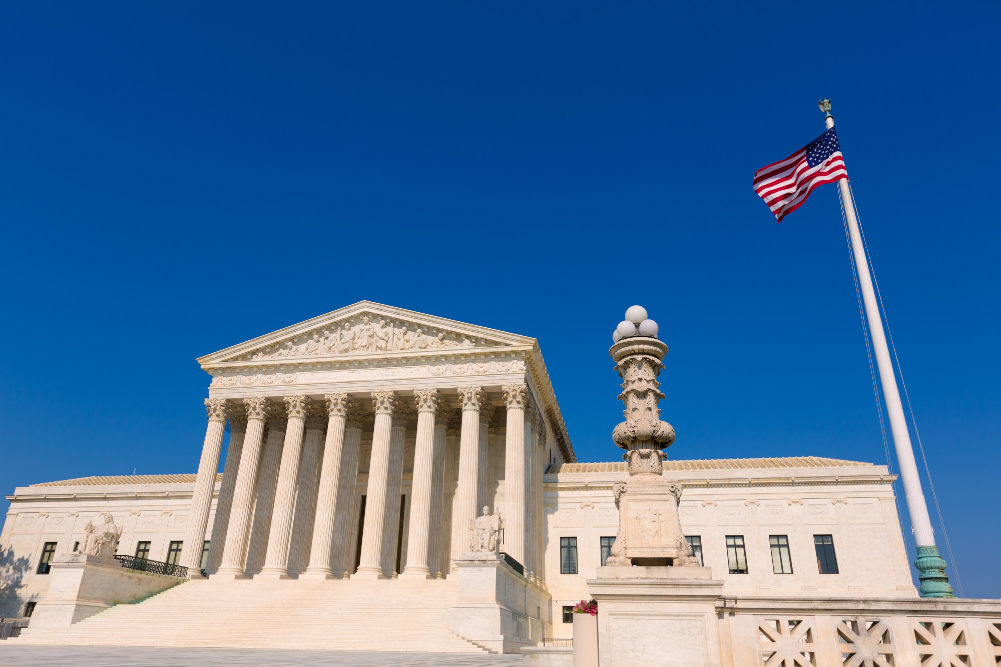Chief Justice Roberts continued in relevant part: Article II of the Constitution vests “executive Power” in “a President of the United States of America.” §1, cl. 1. The President has duties of “unrivaled gravity and breadth.” Trump v. Vance, 591 U. S. 786, 800. His authority to act necessarily “stems either from an act of Congress or from the Constitution itself.” Youngstown Sheet & Tube Co. v. Sawyer, 343 U. S. 579, 585. In the latter case, the President’s authority is sometimes “conclusive and preclusive.” Id., at 638 (Jackson, J., concurring). When the President exercises such authority, Congress cannot act on, and courts cannot examine, the Presi dent’s actions. It follows that an Act of Congress—either a specific one targeted at the President or a generally applicable one—may not criminalize the President’s actions within his exclusive constitutional power. Neither may the courts adjudicate a criminal prosecution that examines such Presidential actions. The Court thus concludes that the President is immune from criminal prosecution for conduct within his exclusive sphere of constitutional authority.
Not all the President’s official acts fall within his “conclusive and preclusive” authority. The reasons that justify the President’s absolute immunity from criminal prosecution for acts within the scope of his exclusive constitutional authority do not extend to conduct in areas where his authority is shared with Congress. To determine the Presi dent’s immunity in this context, the Court looks primarily to the Framers’ design of the Presidency within the separation of powers, precedent on Presidential immunity in the civil context, and criminal cases where a President resisted prosecutorial demands for documents.
The Framers designed the Presidency to provide for a “vigorous” and “energetic” Executive. The Federalist No. 70, pp. 471–472 (J. Cooke ed. 1961) (A. Hamilton). They vested the President with “supervisory and policy responsibilities of utmost discretion and sensitivity.” Nixon v. Fitzgerald, 457 U. S. 731, 750. Appreciating the “unique risks” that arise when the President’s energies are diverted by proceedings that might render him “unduly cautious in the discharge of his official duties,” the Court has recognized Presidential immunities and privileges “rooted in the constitutional tradition of the separation of powers and supported by our history.” Id., at 749, 751, 752, n. 32.
It is ironic to see how far we have come from the Framers intent that the United States have a “vigorous” and “energetic” President. It is difficult to argue that those terms apply to either of the elderly two-party candidates in the 2024 election.

